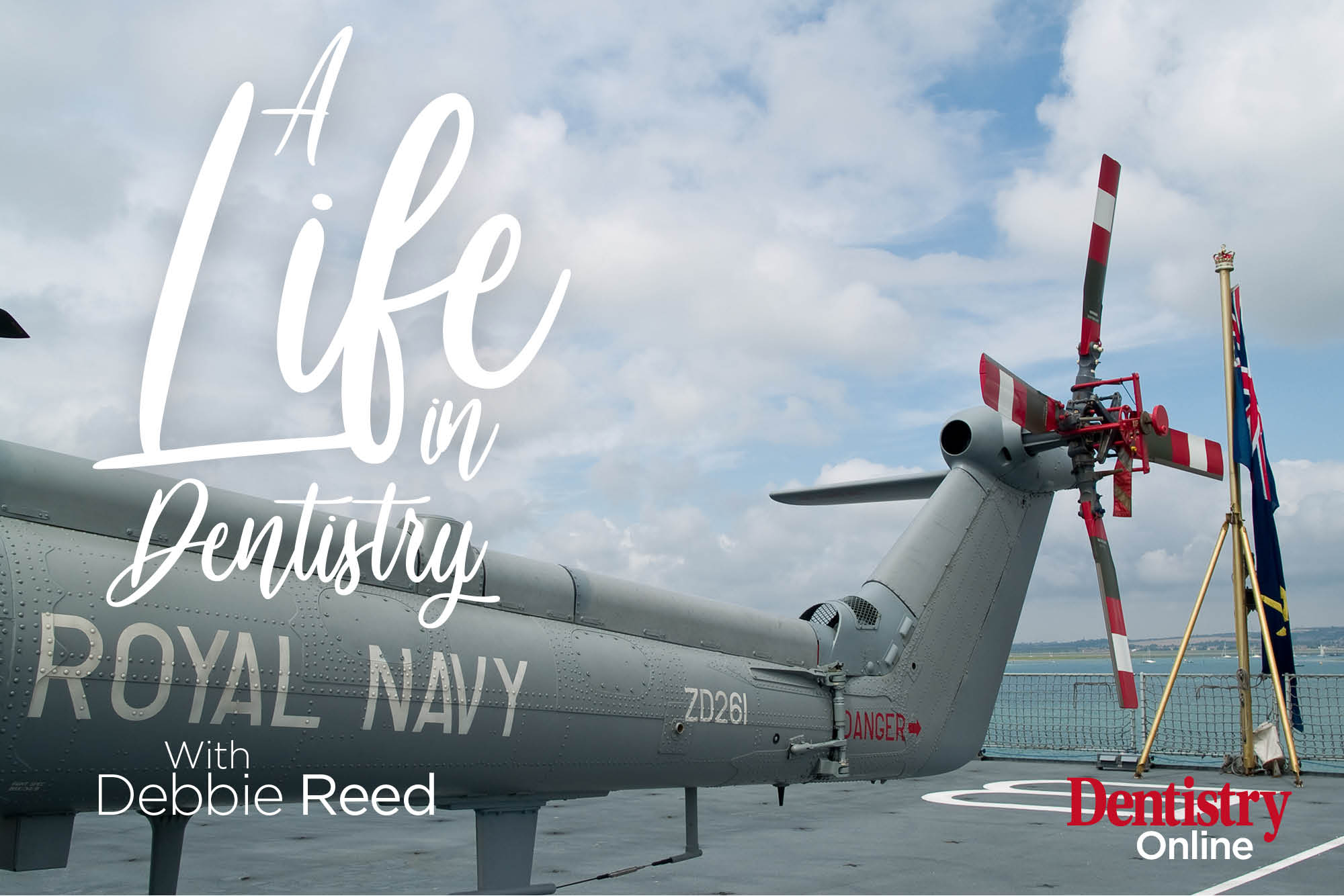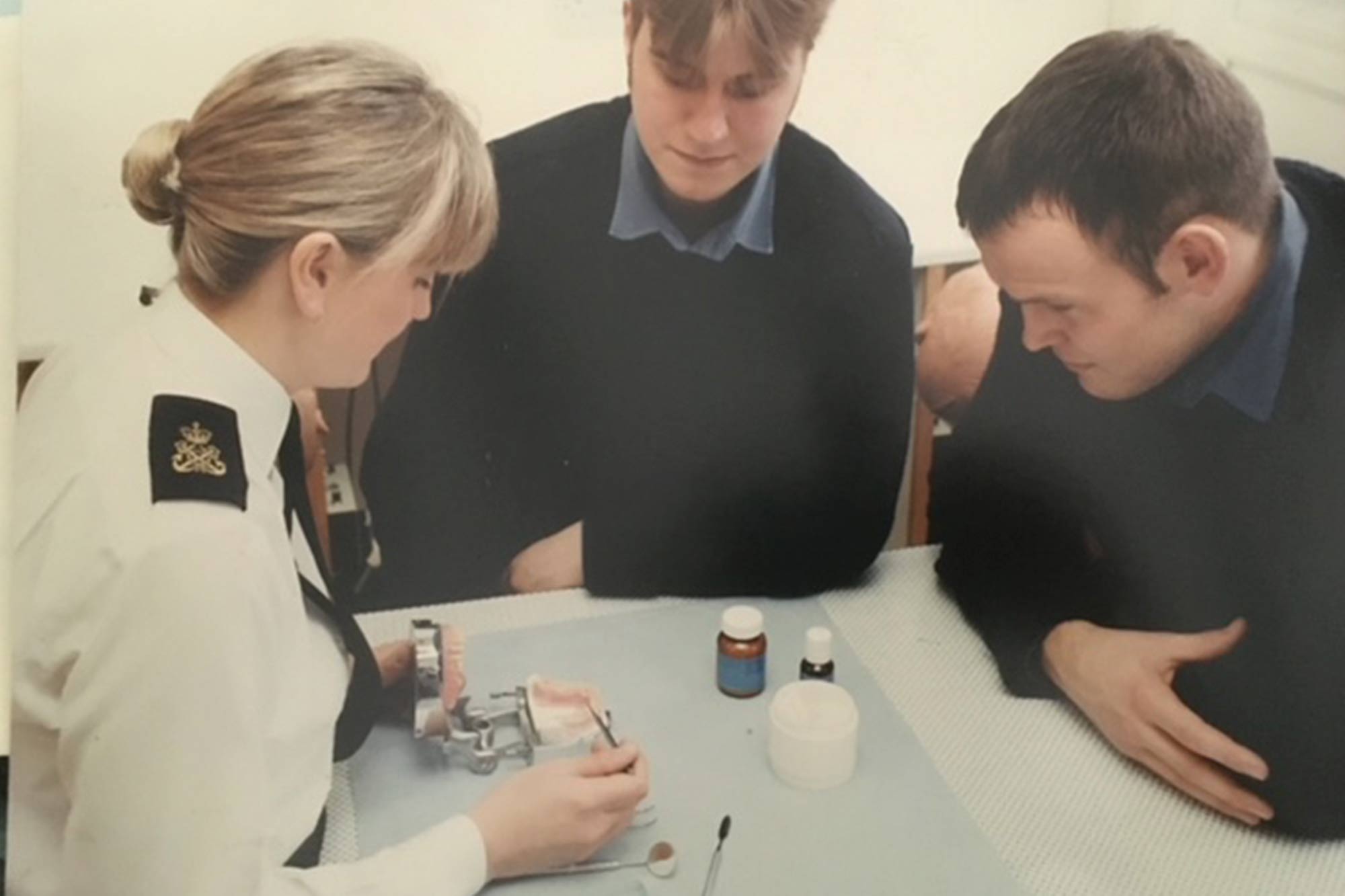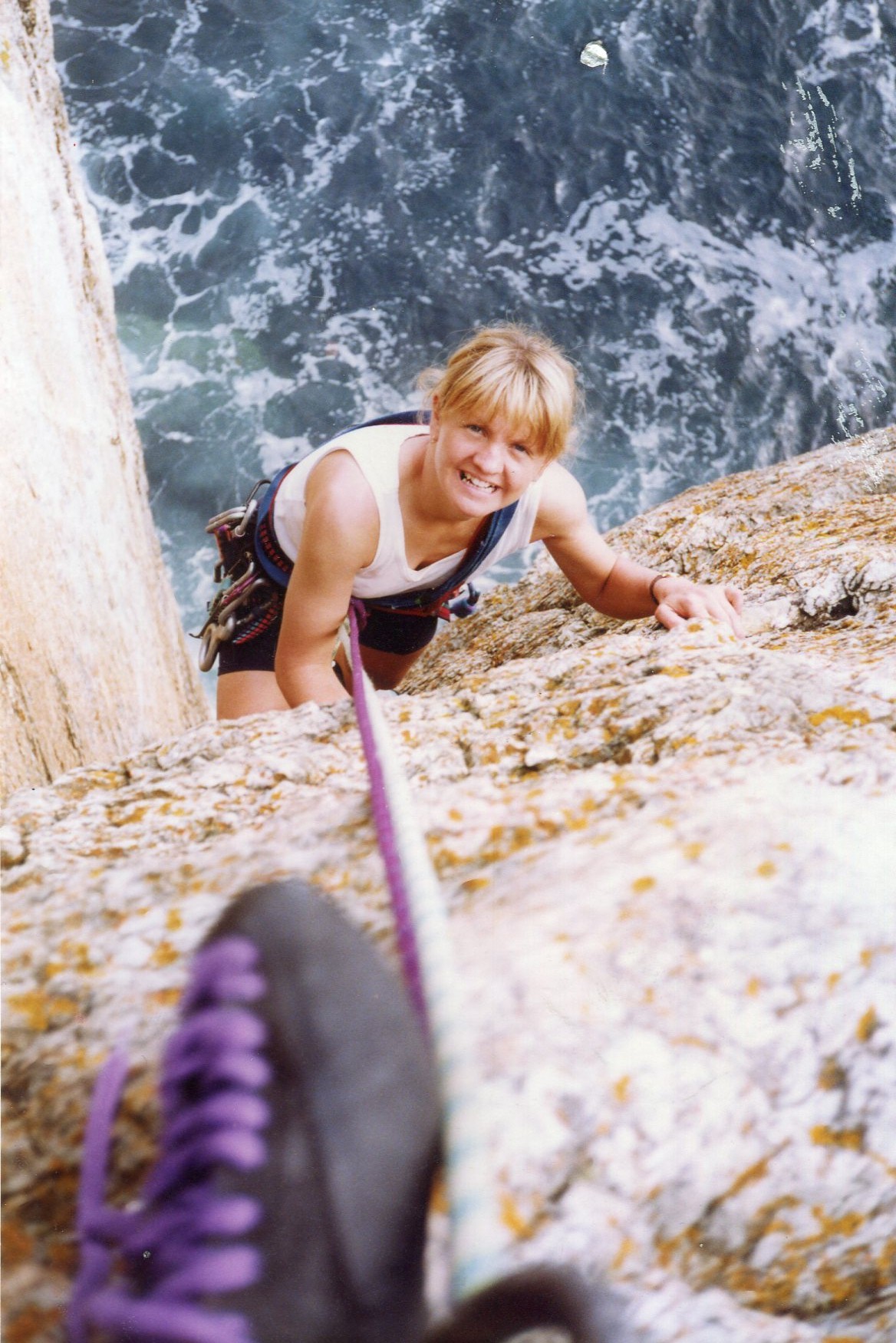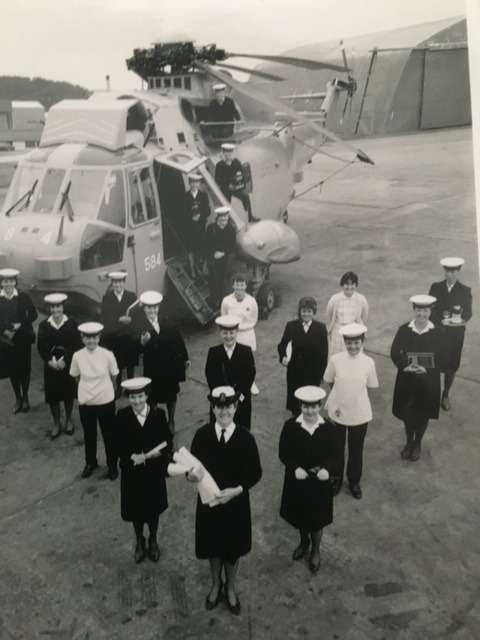 Debbie Reed opens up about her life-changing experiences training and working as a dental nurse in the Royal Navy.
Debbie Reed opens up about her life-changing experiences training and working as a dental nurse in the Royal Navy.
How did you get into dental nursing?
I finished school in 1982 and two years later I had applied and joined the Royal Navy.
I joined as a motor transport driver, primarily because I wanted to get away. I’d come from a coal mining family, and it was at a time when the miners were on strike and the pits were close to closing.
As a result I imagined my life beyond south Derbyshire. And 30 plus years on I’m now back there, and it is a beautiful place to live .
I was really fortunate as I had a really great experience as a motor transport driver. I was living in a mess at the time, which is kind of liked a shared room. And I shared this with a load of dental nurses. They were absolutely brilliant and I got along with them amazingly well.
I then got to go out to Australia on an exchange. It was before people did that kind of thing really. I was 19.
When I was out there, they decided they were going to close down the driving branch and the Navy asked me if I wanted to do something else. I told them that I’d love to be a dental nurse. This was all done via signal.
However, I hadn’t done enough O levels so I had to go and take another. The fact that I was taking it was enough and I was allowed on the course. I had my 21st birthday on a dental nurse course in the old Commander Dental Training in Portsmouth, which I started shortly after getting back from Australia. At that time I had been in the Navy for three years.
 What was it like working as a dental nurse in the Navy?
What was it like working as a dental nurse in the Navy?
I completed the second part of my training at a base down in Cornwall and stayed down there for about six years. I started chairside, but progressed onto practice manager.
The great thing about the Royal Navy is that there was a career structure. Dental nurses did chairside work, then they did practice management and they did training. There were all of these fantastic opportunities.
As a result, it makes me frustrated how the dental profession can be viewed by some. As a dental nurse in the Navy, you were far more likely to be promoted to the upper ceilings of the structure than if you were a dental hygienist.
You could also request to transfer to a dental hygienist. But actually the promotion within dental hygiene was slow and there were far more opportunities and more interesting places to be drafted to as a dental nurse.
You’ve also been involved in dental education. How did this first come about?
I worked as a practice manager and moved around different bases, from Culdrose in Cornwall to HMS Heron in Yeovilton. At this point, I’d done quite a lot to support some of the junior dental nurses. I had a growing interest in education.
Whilst at Yeovilton, I got a call. I was told there was a job coming up in the dental training school in Portsmouth, and would I be interested. It was extremely flattering but also incredibly daunting.
To get promoted, you needed to do exams and courses in the Navy, which included both for your trade (dental nursing) and also for leadership and management, broader more transferable skills. I also went to night school and studied for more O levels and an A Level. I learned how to type, which was important as a practice manager, then how to use a computer.
This was back in 1992/1993 when computerised systems were relatively new.
Success was not just about clinical work – it was about looking around and seeing what other skills I needed to acquire to the next place I wanted to be. It was this commitment to constant development, which eventually lead to the opportunity do a degree, as a part-time student at the University of Southampton and then a masters qualification at the University of Portsmouth
I think it is important to just set the scene – up until the 1990s, if you were female and in the Navy and got married, you tended to leave. You certainly wouldn’t have children and stay in the Navy. Women also didn’t really go out to sea.
You had to make those choices. By 1990, it was a big time of change in the Navy, and more opportunities started to open up.
Some of the things I went on to do were not even thought about when I first joined the Navy. But systematically acquiring skills through CPD made sure I was ready when the opportunities came up.
I got promoted and I moved to Yeovil where I worked at the dental training school in September 1995. At that time the Navy were talking about the school moving to join a school based in Aldershot. I was a little bit apprehensive by this prospect. But I ended up servicing in Aldershot on two separate occasions and it was excellent.
I got work with a fantastic group of people.
 What was it actually like working within the Navy?
What was it actually like working within the Navy?
It was amazing. It was one big of adventure.
If you’re into camping and being outdoors, walking, climbing there was many opportunities to do that, and paid to do it. I was part of the Navy’s exped team who climbed Kilimanjaro. Every so often these incredible chances came up that I just wouldn’t have got if I hadn’t been in that environment.
What was also really important was that I did not feel there was a barrier or any limitations because I was a dental nurse. It didn’t matter.
When I did my promotion courses, I had to do the same work and work just as hard as the people who were engineers and the people who were working as chefs or firefighters. You were judged on your ability to achieve and to lead.
You were not given any concessions because you were female and we didn’t expect any. This is about the individual recognising that you shouldn’t let people put you into a box. See it as a challenge and opportunity to demonstrate your true capability.
It is so frustrating when some try to constrain the ambitions of others or have limiting beliefs particularly about dental nurses and what they can do.

Do you think you kept this mentality throughout the rest of your career?
I think so. I’ve got to say that it wasn’t until I left the Navy that I became conscious that some within the dental sector were almost fearful to recognise how skilled dental nurses and our DCP colleagues are.
In the Navy, it didn’t matter if we worked harder or longer – we always got the same amount of money. You did things because you wanted to do them.
When I got outside, I heard somebody talk about the achievements of a colleague and say: ‘He’s just a dental technician.’ It’s said in an almost disparaging way as if the job title implied a limitation of what they capable of doing. I hadn’t observed that before.
We had completely the opposite in the Navy. The men and the women who were dentists and in the forces would provide so much encouragement and enabled us to be the best we could be.
We had all these fantastic inspirational female role models. As a dental nurse I was from a branch where there were just a handful of men so everything that needed doing was being done by females. We knew what we were capable of and unafraid of a challenge. It was an amazing transformational experience.
There was never a time where I felt like I needed to fit into the box of what society ‘expects’ from females or limits females. I’d left home at 17 and joined the Navy. I found that while I was having all of these life changing experiences, my horizons were broadening, in terms of who I was and what I aspired to.
I was exposed to some many new and exciting things, it was so different to what people at home were doing at that time.
Looking back, I never regretted one moment. Whilst I did not appreciate it at the time, being a member of the armed forces really did set me up for working in the higher education environment.
I had acquired the ethic of hard work and dedication, combined with the ability to lead and manage people from disparate groups. This is crucial for academic success and working with professionally esteemed groups like the new College of General Dentistry.
Today, together with a team of academics and administrative professionals, it is my turn to contribute to life-changing learning opportunities and inspire others, those who come to study at University of Kent.


